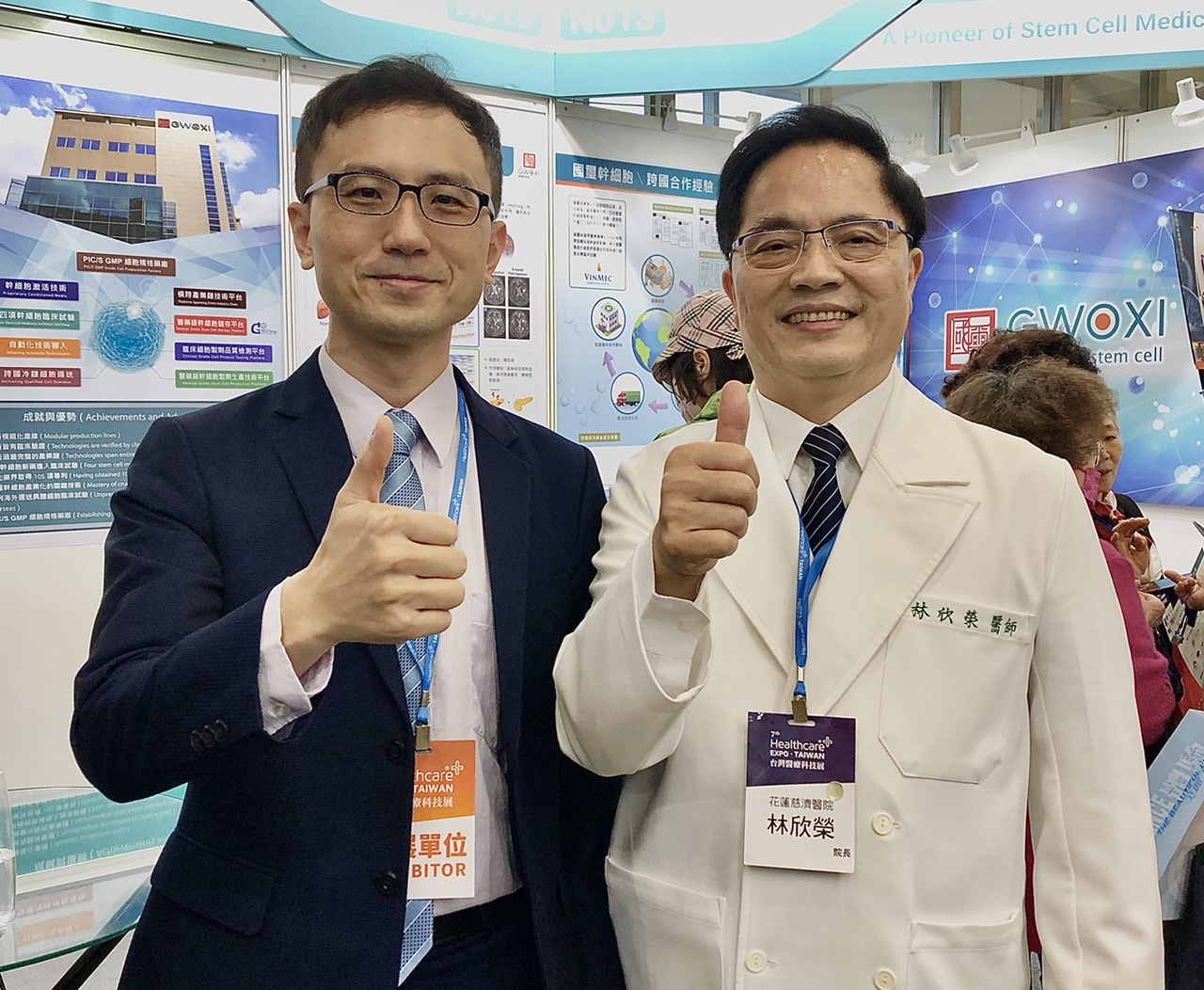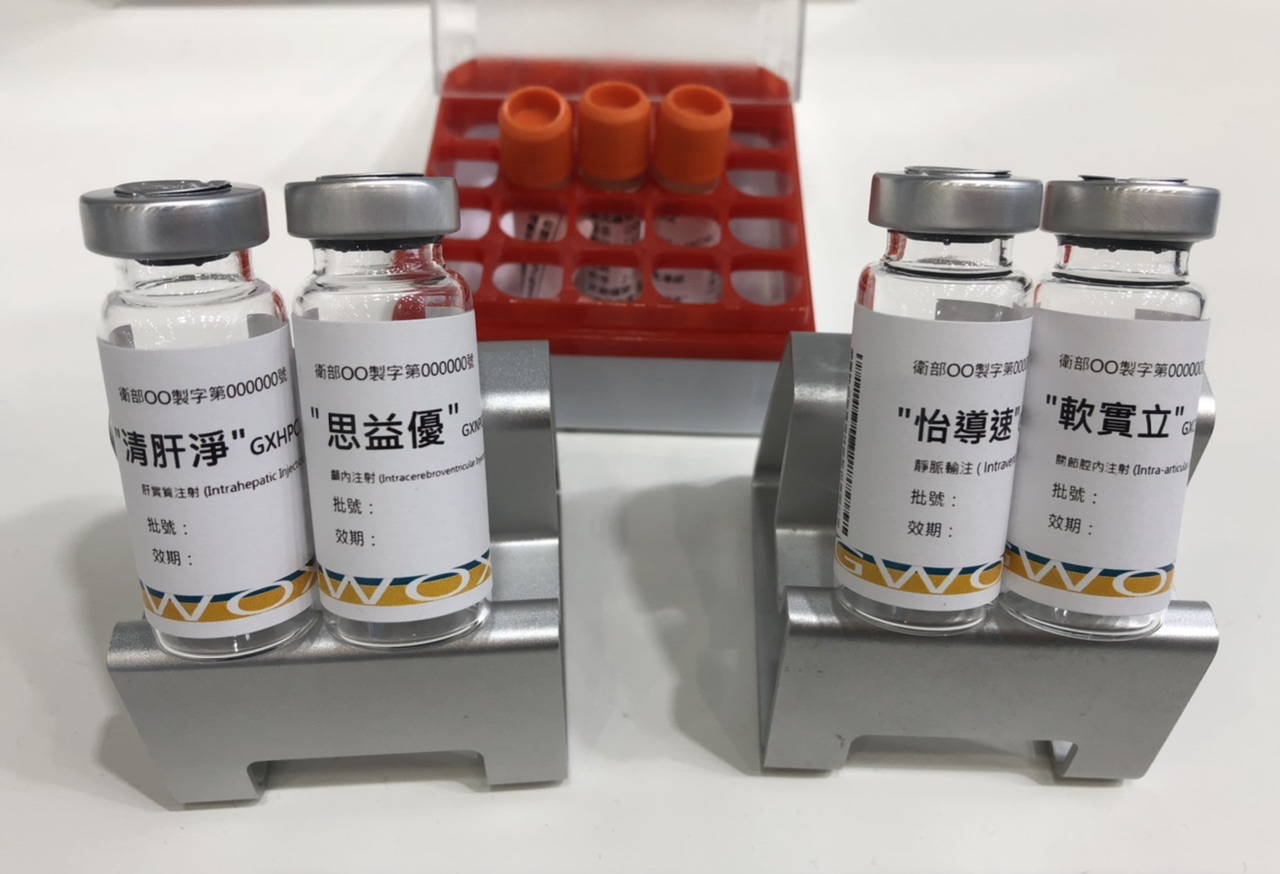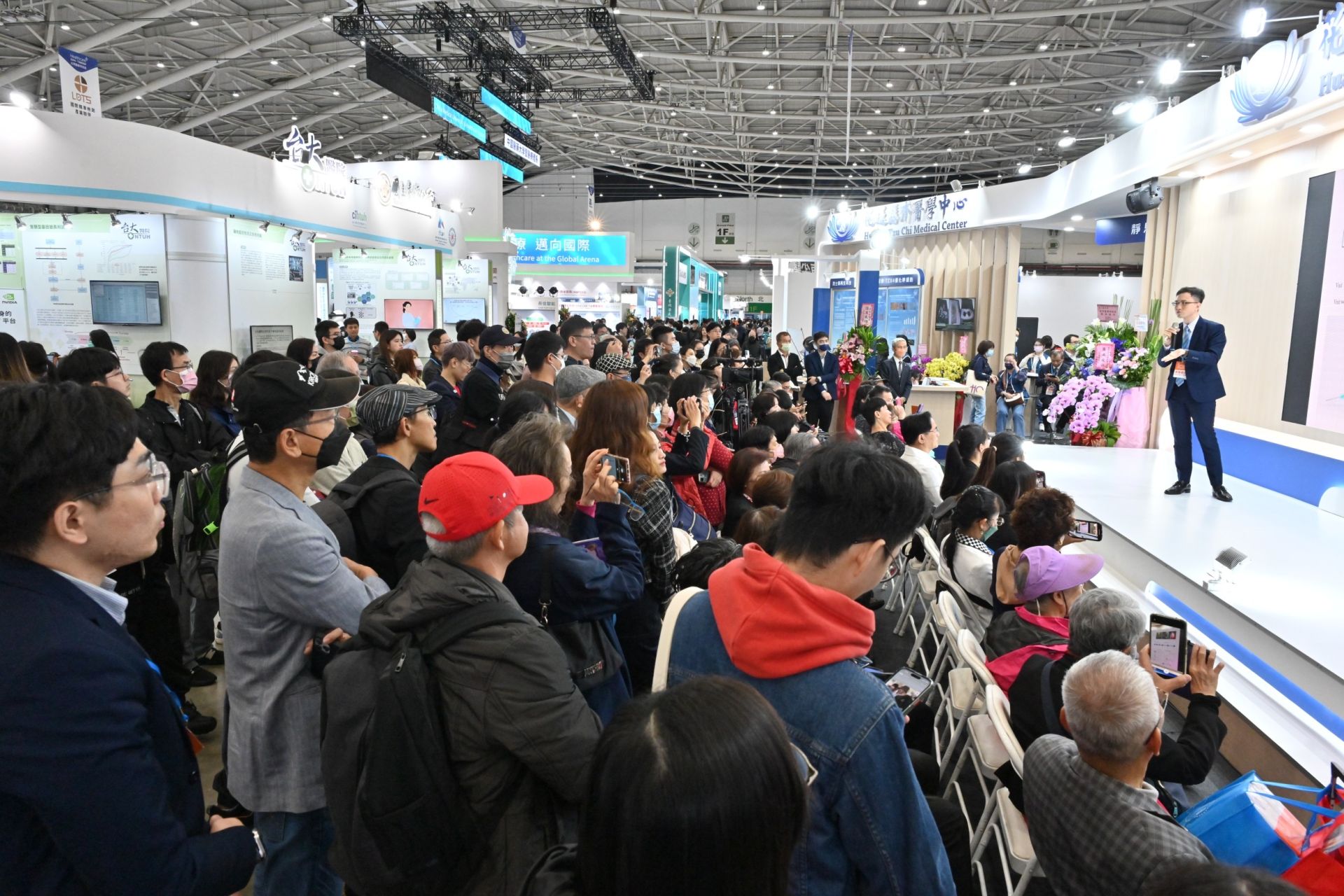Who says belly fat is useless? Through advanced regenerative medicine and cell therapy technology, your own fat can be used to treat your own diseases.
After extracting fat cells from the abdomen and processing them, they are transformed into a regenerative adipose stem cell product that can help paralyzed stroke patients regain mobility. This new technology even astonished Lin Hsin-Jung, President of Hualien Tzu Chi Hospital and a leading expert in neurosurgery.
"The fact that adipose stem cells can help stroke patients take care of themselves was simply unimaginable 10 years ago!" Lin Hsin-Jung said with an air of disbelief. (For more, see: Bone marrow stem cell transplantation to treat spinal cord injury has a success rate of 50%.)
In mid-September 2024, the new stem cell drug for stroke, "Si Yi You," developed in collaboration between Hualien Tzu Chi Hospital and GWOXI Stem Cell, is expected to become a new hope for stroke patients.
The Ministry of Health and Welfare (MOHW) has approved the Phase II clinical trial report for "Si Yi You," and GWOXI Stem Cell has received a letter of consent for review from the MOHW to begin a Phase III clinical trial and apply for a temporary drug license.
GWOXI Stem Cell stated that if it successfully obtains the temporary drug license, "Si Yi You" can be marketed for up to 5 years, allowing stroke patients to use the product while the company evaluates its effectiveness and safety in preparation for a formal drug license.
According to this Phase II final report, stroke patients who received "Si Yi You" treatment began to show therapeutic effects after 2 weeks.
In the high-dose group, the neurological function indicator score (NIHSS) improved by an average of 1.2 points in the second week and continued to improve until the 24th week, reaching an average improvement of 2.7 points. Overall, 89% of patients showed an improvement in neurological function after treatment.
Taiwan's Dual Regenerative Medicine Laws Help Accelerate the Market Launch of Adipose Stem Cell Drugs.
In early June 2024, after a decade of deliberation, the "Regenerative Medicine Act" and the "Regenerative Medicine Products Management Act," also known as the "dual regenerative medicine laws," were finally passed into law.
From now on, people can not only use their own cells to regenerate or repair their ailments, but related drugs can also be launched earlier, shortening the waiting time for patients.
For example, severe burn victims can receive transplants of cultured skin cell sheets; cultured cells can be used to treat cancer or repair a damaged heart, and so on. They can even use blood draws and genetic reprogramming to culture embryonic stem cells for organ transplantation.
Adipose stem cells have emerged as an innovative therapy for stroke patients.
The appeal of cell therapy was evident at the Taiwan Healthcare+ Expo in early December 2023. Hualien Tzu Chi Hospital's booth was crowded with people, all eager to learn what kind of medical marvel the team had that could help wheelchair-bound stroke patients reduce their dependence on others, and even stand up and walk. (For more: Regenerative Medicine: How to Treat Degenerative Knee Osteoarthritis Yourself.)
A 75-year-old paralyzed patient, who had a stroke 6 years ago, had fat cells extracted from their abdomen. After purification and processing, these were turned into over 100 million adipose stem cells. Another patient, a 73-year-old who had suffered two strokes—the most recent one over 1.5 years ago—was assessed as severely dependent on the Barthel Index. The medical team injected the adipose stem cells into the damaged brain tissue of both patients via the scalp.
6 months later, something remarkable happened: the patient’s brain nerves were revitalized and rejuvenated. (For more: Chih-Hung Chang: A World-Leading Stem Cell Therapy for Degenerative Knee Osteoarthritis).
The nerve pathway from the brain that controls the neck, waist, hands, and feet has been revitalized. The patient's self-care ability and fine motor skills have both improved. On the Barthel Index, the patient improved from severe dependence to moderate dependence and can now take care of themselves without relying on others. The NIHSS (National Institutes of Health Stroke Scale) showed an improvement to mild.


Adipose stem cells are saving stroke patients.
"The location of the patient's brain nerve damage was a bullseye, which led to paralysis, and they had to use a wheelchair," said Lin Hsin-Jung. He added that the longer the stroke, the more motor function deteriorates; typically, patients lose their mobility after more than half a year. (For more: CIK cell-based immunotherapy has a control rate of 75% in hundreds of terminal cancer patients.)
During the trial, the stroke patients were conscious while the adipose stem cells were injected. They chatted with Lin Hsin-Jung about their experience, revealing that they had been overly focused on work—not eating, sleeping, or resting—thinking their bodies could handle it. But eventually, they collapsed.
The adipose stem cells mentioned by Lin Hsin-Jung are the new drug "Si Yi You," developed by GWOXI Stem Cell. This cell regeneration technology allows patients to use their own cells to restore their health. GWOXI and Hualien Tzu Chi Hospital collaborated on a trial for 12 stroke patients, calling it an innovative therapy.
Lin Po-Cheng, General Manager of R&D at GWOXI Stem Cell, stated that by extracting 2-5 grams of fat from a patient's abdomen and processing it for 2 weeks, it can be expanded into 100-200 million "Si Yi You" adipose stem cells. These cells generate growth factors that repair and connect severed nerves, which can change the fate of stroke patients.
Based on animal studies, the treatment has been proven to promote angiogenesis and improve stroke-related disability, and he is confident that it will also be effective in humans.
The success rate of adipose stem cell treatment for stroke exceeds 60%.
Starting in 2017, GWOXI collaborated with Hualien Tzu Chi Hospital to conduct a Phase 1 human clinical trial of autologous adipose stem cells. Using a brain stereotactic technique, they injected Si Yi You, containing 100 million stem cells, into the patients' heads. The trial proved the therapy to be safe and effective, improving mobility, and the results were published in an international medical journal.
In 2019, a Phase 2 trial was conducted, enrolling patients aged 45 to 85 who had suffered a stroke more than 6 months prior. At this stage, the injected Si Yi You stem cell dosage was increased to 200 million.
"The success rate of the adipose stem cell trial exceeded 60%!" said Lin Po-Cheng. He added that 89% of patients showed an improvement in neurological function, with their brain nerves being reactivated. Some progressed to the point of being able to stand, and 2 people could walk, marking a major breakthrough in clinical treatment.

Adipose stem cells can revitalize brain degeneration 36 years after a stroke.
Lin Po-Cheng further stated that cerebrovascular disease is the 5th leading cause of death. Within half a year of a first stroke, 1 in 2 people become disabled, and 17,000 people become paralyzed and disabled annually. The number of days spent in the hospital is the 3rd highest among all diseases, and the re-hospitalization rate after one year is 50%. He added that a stroke can cause the brain to degenerate for 36 years, requiring 36 years of rehabilitation to restore function.
"There are 1 million patients in Taiwan who have had a stroke for more than six months and are in need of new medical technology," said Lin Hsin-Jung, who is highly confident in the therapeutic potential of "Si Yi You."
Given the promising results of the Phase 2 trial, "Si Yi You" has obtained a Taiwan patent, and the company's next step is to apply for patents in the United States and Mainland China.
GWOXI is currently planning a Phase 3 trial that is expected to use 200 million adipose stem cells for treatment. As the age of stroke patients decreases, the maximum age for trial participants will be lowered from 85 to 76 to help more patients.
However, with the passing of the dual regenerative medicine laws, treatments for life-threatening or severely disabling diseases like stroke can be launched sooner. As for drug verification, market launch strategy, treatment costs, and payment methods, these have yet to be determined.
Stroke is the 4th leading cause of death in Taiwan, claiming about 10,000 lives each year. Annually, 30,000 to 50,000 people in Taiwan suffer a stroke. While in the past, 1 in 6 people might have a stroke, now 1 in 4 people face a lifetime risk, indicating an increasing trend in its incidence.
If the medication proves effective, it will be a great blessing for patients.
Photo credit: Dr. 131 Medical, Hualien Tzu Chi Hospital
